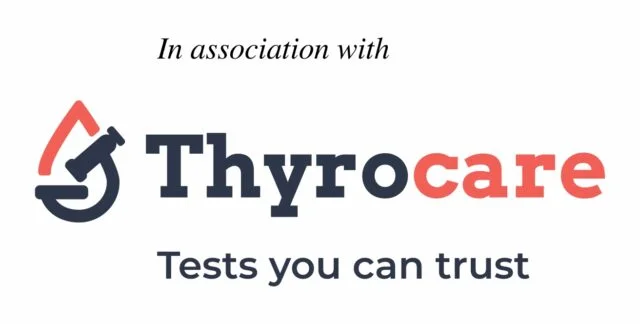Thyrocare Aarogyam C Full Body Checkup: Your Ultimate Health Assessment
In todays fast-paced lifestyle, preventive healthcare is no longer an optional thing. It is truly essential. ThyroCare Arogyam-C is a comprehensive full-body health checkup package which is designed for adults that are interested in getting detailed and reliable assessment of their health.
This package covers 74 vital parameters ranging from cardiac risk markers to vitamin levels. It can actually empower individuals to detect early health issues and maintain wellness. This package is especially useful for those above the age of 18 that are looking forward to get a holistic evaluation of their health parameters including liver, kidney, thyroid, lipid, diabetes, iron, hormones, and complete blood profile. This package comes with the convenience of home sample collection and free Average blood sugar testing.
Comprehensive Test Parameters
Cardiac Risk Markers (5)
- Apo B / Apo A1 Ratio, Apo-A1, Apo-B
- High Sensitivity C-Reactive Protein (HS-CRP)
- Lipoprotein(a) [Lp(a)]
Complete Hemogram (28)
- RBC, WBC, Hemoglobin, Platelets, and more
- Detects blood diseases, infections, and anemia
Diabetes Profile (2)
- HbA1c, Average Blood Glucose (ABG)
Hormone & Thyroid (4)
- Testosterone, T3, T4, Ultra-sensitive TSH
Iron & Vitamin Panel (6)
- Iron, TIBC, % Transferrin Saturation, UIBC
- Vitamin D (25-OH), Vitamin B12
Lipid Profile (10)
- Total Cholesterol, HDL, LDL, VLDL, Triglycerides
- Ratios: LDL/HDL, TC/HDL, TRIG/HDL
Liver & Kidney Function (19)
- SGOT, SGPT, Bilirubin, ALP, Albumin, Globulin
- BUN, Creatinine, Uric Acid, Calcium
Benefits of Thyrocare Aarogyam C
1. Holistic Health Assessment
- Cardiac, liver, kidney, thyroid, and lipid profiles
- Complete hemogram with 28 parameters
- Vitamin D & B12, iron deficiency, and hormone testing
2. Early Detection of Chronic Conditions
- Diabetes (HbA1c, Average Blood Glucose)
- High cholesterol and cardiovascular risk markers
- Thyroid dysfunction and hormonal imbalance
3. Convenience and Reliability
- Home sample collection available nationwide
- Fast turnaround: 24–48 hours
4. Quality Assurance
- NABL, CAP, and ISO-certified laboratories
- Automated, high-precision testing technology
- Standardized sample processing for accurate results
Aarogyam C combines convenience, affordability, and diagnostic accuracy, making it ideal for preventive healthcare and lifestyle monitoring.
How Thyrocare Aarogyam C Works
- Book the test online or via AreYouHealthy.in/ Thyrocare
- Schedule home sample collection by a trained phlebotomist
- Fast 10–12 hours before sample collection (water allowed)
- Samples analyzed in NABL, CAP, and ISO-certified labs
- Reports delivered via email/WhatsApp in 24–48 hours
Who Should Take Aarogyam C?
Arogyam C is perfect for adults above the age of 18 that are seeking preventive health monitoring. This package is also useful for individuals with lifestyle risk factors such as stress, obesity, and sedentary routine. Another set of people that can opt for Arogyam C by Thyrocare are those that have symptoms such as fatigue, hair fall, or frequent infection. Basically, anyone that is looking for a yearly comprehensive health checkup can choose Arogyam C.
FAQs for the Thyrocare Aarogyam C Package
What is a hemogram?
Hemogram also referred as CBC, or Complete Blood Count, evaluates the blood composition including hemoglobin, and platelets. It helps in detecting anemia, infection, and various other blood disorders.
What payment options do I have for booking Aarogyam C?
Thyrocare accepts payments via credit cards, debit cards, net banking, UPI, and cash upon sample collection in most locations. You will also receive a payment link via SMS and email. We recommend making online payments before the collection to avoid any hassle early in the morning.
What is the difference between Aarogyam C and Aarogyam XL?
Aarogyam XL is an advanced package that includes all the tests in Aarogyam C, plus additional parameters like allergy and hormone profiles. XL is essentially a master health checkup package.
Can Aarogyam C tests detect early diabetes?
We hope that your reports come back normal. Contact a doctor for a review if some parameters are abnormal. The Aarogyam C package includes tests like fasting blood sugar (FBS) and HbA1c, which are crucial for identifying and monitoring diabetes conditions.
How frequently should I opt for a Thyrocare Aarogyam C health checkup?
The frequency of opting for a full-body checkup like Aarogyam C depends on your age, health condition, and risk factors. In general, for young adults between 20 and 39, getting it done every two years will be okay. For middle-aged individuals between the ages of 40 and 59, we recommend administering the test annually. Anyone over 60 can take the test every 6 months. Your doctor shall be in a better position to decide the accurate frequency depending on your health condition.
Why test for thyroid hormones?
Thyroid tests can help detect hormonal imbalances that impact metabolism, energy, weight, and overall health. Ultra-sensitive TSH helps identify early subclinical thyroid issues.
Is fasting required?
Yes, 10–12 hours fasting is required for accurate blood sugar, lipid, and metabolic results.
How reliable are Thyrocare reports?
Thyrocare reports are highly reliable. The samples are processed in NABL, CAP, and ISO-certified labs with automated quality control checks.
What is the cost of Aarogyam C?
The discounted offer price for Aarogyam C on AreyouHealthy.in (Thyrocare Channel partner ) is Rs 1349

